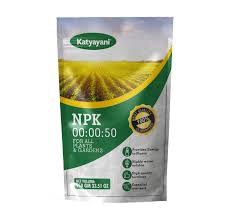
Aug . 01, 2024 03:26 Back to list
Understanding EDDHA Iron Chelate and Its Benefits for Plant Nutrition and Soil Health
Eddha Iron Chelate A Vital Component for Plant Nutrition
Iron is an essential micronutrient that plays a pivotal role in the growth and development of plants. It is involved in crucial biochemical processes, including chlorophyll synthesis and enzymatic functions. However, iron often exists in forms that are not readily available to plants, particularly in alkaline or calcareous soils. This is where EDDHA iron chelate comes into play, acting as a vital solution to enhance iron availability and promote healthy plant growth.
EDDHA, or ethylenediamine-N,N'-diacetic acid, is a synthetic chelating agent designed to stabilize iron ions in solution, making them more bioavailable to plants. Unlike traditional iron sources, such as ferrous sulfate, EDDHA iron chelate remains effective at a broader range of pH levels. This characteristic addresses a common challenge faced by many gardeners and agriculturalists the complex interplay of soil pH and metal ion availability.
Eddha Iron Chelate A Vital Component for Plant Nutrition
The application of EDDHA iron chelate is particularly beneficial for specific crops that are more susceptible to iron deficiency, such as citrus trees, avocados, and certain types of ornamental plants. Iron chlorosis, a common symptom of iron deficiency, is characterized by yellowing of leaves while the veins remain green. By providing EDDHA iron chelate, farmers and gardeners can correct this deficiency efficiently, leading to the rejuvenation of affected plants.
eddha iron chelate

Moreover, EDDHA iron chelate is not only effective for soil application but also for foliar sprays. This versatility allows for targeted intervention, especially in cases where soil amendments are impractical due to existing crop growth. Foliar application can provide rapid iron uptake, mitigating stress on plants under iron deficiency conditions.
In addition to its practical applications, EDDHA iron chelate boasts a favorable environmental profile. As a chelated form of iron, it minimizes the risk of leaching and reduces the chances of toxicity that can come from excess application of non-chelated iron sources. This aspect is particularly crucial as sustainable agricultural practices come to the forefront, emphasizing the need for responsible use of fertilizers and soil amendments.
Despite the many benefits of EDDHA iron chelate, it is essential for users to follow recommended application rates and practices. Overuse can lead to nutrient imbalances, which might adversely affect plant growth. Conducting soil tests prior to application can give farmers and gardeners valuable insights into existing nutrient levels, allowing for precise and effective use of EDDHA iron chelate.
In conclusion, EDDHA iron chelate stands out as a critical tool for enhancing plant nutrition, particularly in regions with alkaline soils prone to iron deficiencies. Its stability across varying pH levels, combined with its application versatility and environmental safety, makes it an invaluable asset for growers aiming for optimal plant health. As the demand for sustainable agricultural practices increases, the importance of products like EDDHA iron chelate in ensuring food security and environmental balance cannot be overstated. Careful and informed use of this chelate can help unlock the full potential of crops, paving the way for thriving agricultural systems.
-
10 10 10 Fertilizer Organic—Balanced NPK for All Plants
NewsJul.30,2025
-
Premium 10 10 10 Fertilizer Organic for Balanced Plant Growth
NewsJul.29,2025
-
Premium 10 10 10 Fertilizer Organic for Balanced Plant Growth
NewsJul.29,2025
-
Premium 10 10 10 Fertilizer Organic for Balanced Plant Growth
NewsJul.29,2025
-
50 Pound Bags of 13-13-13 Fertilizer for All Plants – Bulk & Organic Options
NewsJul.28,2025
-
High-Efficiency 15-30-15 Granular Fertilizer for Healthy Crops
NewsJul.28,2025
